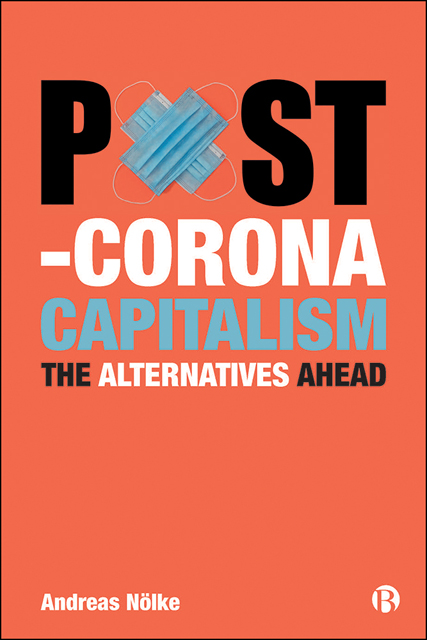Book contents
- Frontmatter
- Dedication
- Contents
- List of Abbreviations
- Acknowledgements
- Preface
- 1 Introduction: Confronting a Multidimensional Crisis of Capitalism
- Part I Capitalism and Society
- Part II Domestic Institutions of Capitalism on the Demand Side
- Part III Domestic Institutions of Capitalism on the Supply Side
- Part IV The International Institutions of Capitalism
- Part V Anthropocene Capitalism
- Part VI Geo-economic Shifts in Global Capitalism
- Part VII Ideologies in Contemporary Capitalism
- References
- Index
22 - Global Health Governance: Intergovernmental or Private– Public Networks?
Published online by Cambridge University Press: 13 October 2022
- Frontmatter
- Dedication
- Contents
- List of Abbreviations
- Acknowledgements
- Preface
- 1 Introduction: Confronting a Multidimensional Crisis of Capitalism
- Part I Capitalism and Society
- Part II Domestic Institutions of Capitalism on the Demand Side
- Part III Domestic Institutions of Capitalism on the Supply Side
- Part IV The International Institutions of Capitalism
- Part V Anthropocene Capitalism
- Part VI Geo-economic Shifts in Global Capitalism
- Part VII Ideologies in Contemporary Capitalism
- References
- Index
Summary
With regard to global governance, the most striking development during the coronavirus crisis was the decision of President Trump – withdrawn by President Biden – to leave the WHO, based on an allegedly too prominent role of the Chinese government in this organization. Later during the pandemic, limitations of global health governance became an issue because it turned out to be very difficult to safeguard an equitable global distribution of scarce vaccines and global health institutions were unable to prevent ‘vaccine nationalism’. For some observers, finally, global health governance has been fundamentally flawed for many years, because of the prominent role of private actors such as the Gates Foundation. Do we need to return to the intergovernmental system of the WHO or should we proceed with giving a major say to private–public networks?
Concepts of global economic governance
The study of global economic governance provides us with ample analytical instruments in order to put these developments in place. For uninformed observers, the WHO may look like the powerful global authority on all health issues. International Political Economy scholars, however, are well aware that the power of the WHO – like that of all UN organizations –is severely circumscribed.
International organizations such as the WHO fulfil two main functions. On the one side, they act as meeting points of national governments for the development of common rules and activities. On the other side, the secretariats of these organizations have important functions for the impartial collection of data, research and recommendations on global best practices. In both cases, they rely on the cooperation by its member governments (O’Brien and Williams, 2016: 300–1. International organizations only very rarely have power over its member governments. This usually is only the case if they have a huge amount of financial resources and member states are in financial distress, as for example in the case of structural adjustment programmes designed by the IMF and the WB during the 1980s and 1990s (O’Brien and Williams, 2016: 303–4). As we shall see, the WHO has been crippled by conflicts between its member governments and has been starved financially, thereby limiting its abilities during the last decades.
While the different priorities of Northern and Southern governments regarding UN organizations is a well-established phenomenon, it has recently been complemented by another ‘North–South conflict’.
- Type
- Chapter
- Information
- Post-Corona CapitalismThe Alternatives Ahead, pp. 136 - 141Publisher: Bristol University PressPrint publication year: 2022



